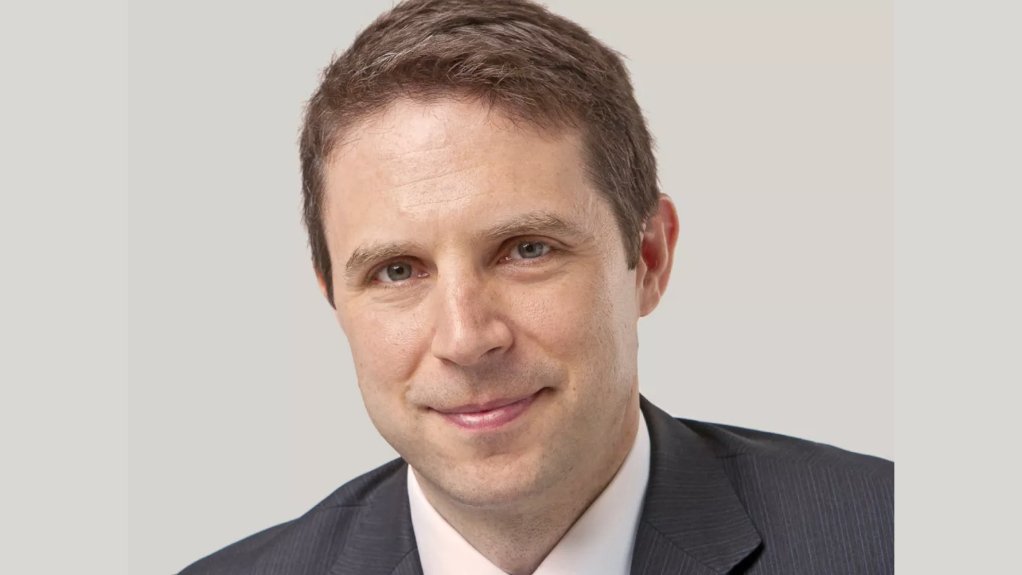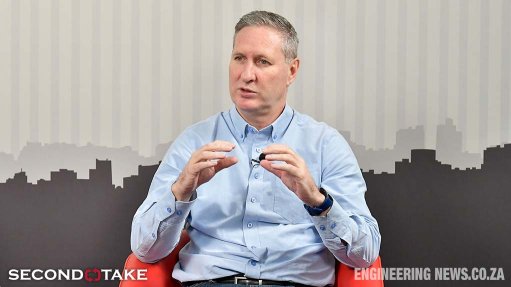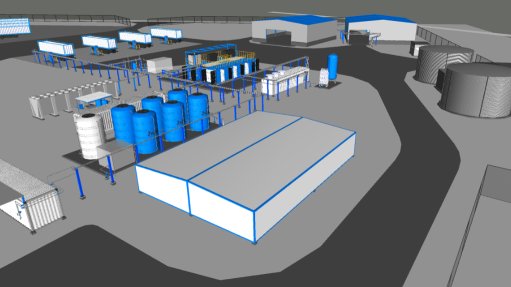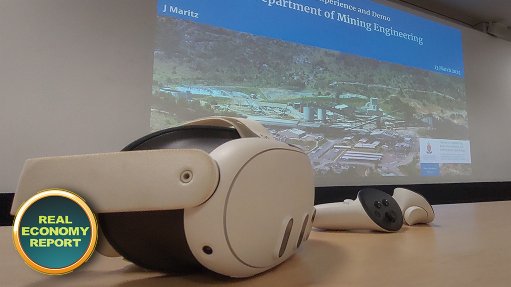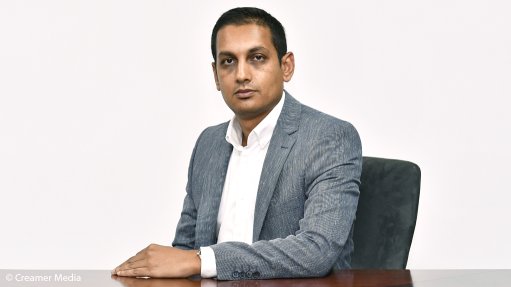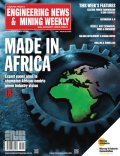Opinion: From mine to market – building a more transparent and trusted gold supply chain
In this article, World Gold Council (WGC) CFO Terry Heymann argues that the disclosure of a miner’s refining partners will support recognition of a trusted eco-system that will grow over time and make it harder for bad actors to access the formal gold market.
In September 2023, the members of the WGC, who represent the majority of the global large-scale gold mining industry, set out their commitment to providing enhanced transparency in the gold supply chain.
This commitment comprised two distinct aspects. Firstly, the members committed to publish the names and locations of their refining partners, on at least an annual basis. Secondly, all members also committed to joining the Gold Bar Integrity (GBI) platform and supplying, on a confidential basis, “core data” on the gold they have produced for their refining partners.
Six months on, it is a good time to reflect on why these commitments were made and how they will shape the future of a more transparent and trusted gold value chain.
Responsible actors in the gold industry are making significant strides to be more transparent and help users, investors, regulators and supply chain partners have greater confidence that gold has been responsibly mined and responsibly sourced. This is a trend seen in all sectors – a movement towards greater openness about how supply chains are stitched together. However, it is particularly important in the gold industry. Although the vast majority of the gold industry takes great care to operate responsibly, there are, unfortunately, a few bad actors who use gold for nefarious purposes. This is the reason the Organisation for Economic Cooperation and Development (OECD) started work – now more than a decade ago – to set out guidelines for how to source gold responsibly, with specific reference to gold originating from conflict-affected and high-risk areas. Yet the OECD is clear that supply chains should not put an embargo on sourcing gold from these areas, but rather take steps to ensure that the gold they source has been responsibly produced and the supply chain operates ethically.
Responsible mining and sourcing extend to much more than due diligence around minerals originating from conflict-affected and high-risk areas. It includes broader social considerations, including labour rights of workers and the impact of businesses on their local communities. It covers environmental considerations, including climate change – but also more broadly recognizes one’s role as an environmental steward. And, of course, it extends to responsible business practices overall – operating within the law, treating partners and suppliers fairly, and supporting the economic and social well-being of local communities and countries.
This commitment to responsible business operations has led to the development of practices that are followed within an individual company – for example, adherence to the Responsible Gold Mining Principles, which were launched in September 2019 and clearly set out expectations of a responsible gold mining company.
Yet what has been missing to date has been connectivity along the supply chain – a way not just for individual companies to demonstrate that they are “responsible,” but that they are committed to working with other responsible companies to create a robust, resilient, and dependable supply chain. This connectivity can magnify the benefits of responsible business, creating a supply chain – and ultimately an industry – where everybody can have confidence that they are dealing with reputable counterparties.
This focus on enhanced supply chain due diligence and collective responsibility is also increasingly the focus of regulators. Even though it has been deferred for now, the European Union Corporate Sustainability Due Diligence Directive will oblige all companies operating in the EU to undertake due diligence on their supply chain partners – both when sourcing goods and services and in vetting to whom they deliver their goods and services.
Which brings us back to the gold industry and the commitments made by the members of the WGC. These commitments are a strong statement of intent to build a more robust supply chain working only with responsible business partners. The disclosure of a miner’s refining partners will help investors and consumers gain a better insight into whom WGC members choose to do business with. This will support recognition of a trusted eco-system that will grow over time, such that all responsible actors will want to participate, and make it ever harder for “other actors” to access the formal gold market.
The commitment to uploading core data onto the GBI platform will support the integrity of the gold supply chain. Over time, more and more supply chain participants will also upload data onto the GBI platform and, in a few years’ time, it’s conceivable that each gold bar will be supported by a “digital twin” that can demonstrate that all the gold contained in the physical bar has been responsibly sourced and that the gold bar has always been vaulted and owned by responsible parties. This will not only help anybody who is looking to purchase this gold to have confidence that they can do so in line with their responsible sourcing commitments, but also underpin the creation of digitalised gold products, a new area of growth and innovation that we at the WGC are very excited about.
In summary, what we are seeing is a maturity beyond “my company operates responsibly” to “my entire supply chain operates responsibly”. Naturally, this mindset shift will take time to be fully absorbed and implemented. However, the commitments made by WGC members to supply chain transparency are helping shape the future landscape for the gold sector as a whole – positioning the responsible gold trade at the forefront of responsible business practices and ensuring that gold continues to be a trusted asset class for generations to come.
Comments
Announcements
What's On
Subscribe to improve your user experience...
Option 1 (equivalent of R125 a month):
Receive a weekly copy of Creamer Media's Engineering News & Mining Weekly magazine
(print copy for those in South Africa and e-magazine for those outside of South Africa)
Receive daily email newsletters
Access to full search results
Access archive of magazine back copies
Access to Projects in Progress
Access to ONE Research Report of your choice in PDF format
Option 2 (equivalent of R375 a month):
All benefits from Option 1
PLUS
Access to Creamer Media's Research Channel Africa for ALL Research Reports, in PDF format, on various industrial and mining sectors
including Electricity; Water; Energy Transition; Hydrogen; Roads, Rail and Ports; Coal; Gold; Platinum; Battery Metals; etc.
Already a subscriber?
Forgotten your password?
Receive weekly copy of Creamer Media's Engineering News & Mining Weekly magazine (print copy for those in South Africa and e-magazine for those outside of South Africa)
➕
Recieve daily email newsletters
➕
Access to full search results
➕
Access archive of magazine back copies
➕
Access to Projects in Progress
➕
Access to ONE Research Report of your choice in PDF format
RESEARCH CHANNEL AFRICA
R4500 (equivalent of R375 a month)
SUBSCRIBEAll benefits from Option 1
➕
Access to Creamer Media's Research Channel Africa for ALL Research Reports on various industrial and mining sectors, in PDF format, including on:
Electricity
➕
Water
➕
Energy Transition
➕
Hydrogen
➕
Roads, Rail and Ports
➕
Coal
➕
Gold
➕
Platinum
➕
Battery Metals
➕
etc.
Receive all benefits from Option 1 or Option 2 delivered to numerous people at your company
➕
Multiple User names and Passwords for simultaneous log-ins
➕
Intranet integration access to all in your organisation



